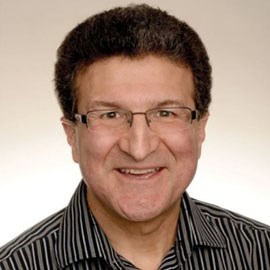Pierre Teilhard de Chardin said, "We are not human beings having a spiritual experience. We are spiritual beings having a human experience."
This is a bold statement, and quite a deviation from traditions that tell us not to boast about our greatness. If we look at the major religions and philosophies of the world however, we see similar views to those of de Chardin. Judaism, Christianity and Islam, for example, all state that we are created in God's image. Buddhism teaches that we are the highest form of creation and capable of attaining enlightenment.
What is interesting is that those who view themselves in this positive light tend to view others the same. There is also a very big difference between believing in one's inner greatness and in being narcissistic. Dale Carnegie points out that feeling important is an essential element of our human nature. "If you tell me how you get your feeling of importance, I'll tell you what you are." A narcissist build himself up by tearing others down. In contrast, when we embrace our spiritual nature, we recognize that all around us are divine, and we treat them with the honour that this merits. When we feel good about ourselves, we make others feel good about who they are.
People who feel good about themselves also do not feel threatened by the success of others, in fact they celebrate it. Where a jealous or narcissistic person may say, "Why not me?", an effective person will say, "I'm really happy for you!" When we recognize our giftedness, we are at peace with areas in life where others excel.
For example, recently two of my teaching colleagues won a provincial championship in basketball. Not only are they great teachers and motivators, they have an innate ability to read what is happening on the court, and are thus always able to help their players respond effectively. That is their gift, and the rest of our school celebrated with their team as the championship banner went up in our gym. Other people have gifts in different areas, and that is wonderful too.
Slowly but surely we are getting better at celebrating our differences. Not many years ago, Gay Pride parades were seen in a negative light. Today they are cause for celebration. Rainbow flags wave proudly, and cities like ours are painting rainbow crosswalks in embracing our beautiful diversity. This is in stark contrast to the horrific mass murder at a nightclub frequented by the LGBTQ community in Orlando; but, the global response to honour those who died and bring about real and positive change in their memory demonstrates that we live in a world that will no longer stand back and watch crimes committed against spiritual beings, our own brothers and sisters.
Our education system, once an institution for creating conformity, is getting better as celebrating diversity. It is a joy, for example, to see aboriginal stories, art, music and dance taking a prominent role in our schools. Teachers are also being given more freedom to adapt the curriculum to the students they teach, especially in literature, social studies and the arts. We are also learning to adjust to the individual needs of our students, rather than trying to force all of our children into the same mold.
As we recognize the sacredness of ourselves, we recognize the sacredness of those around us and build each other up. This not only creates a more positive environment, it creates a ripple effect. People who feel good about themselves recognize the goodness of others and thus encourage them to celebrate the lives of their neighbours. When dark times and challenges come, as they always do, we can face them together knowing that we are always moving our world forward.



